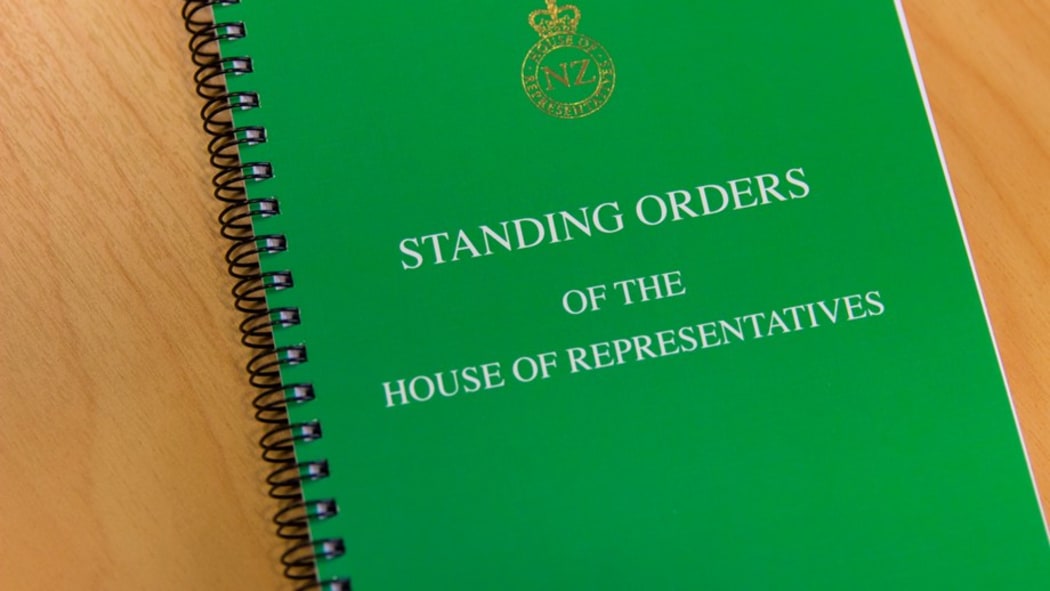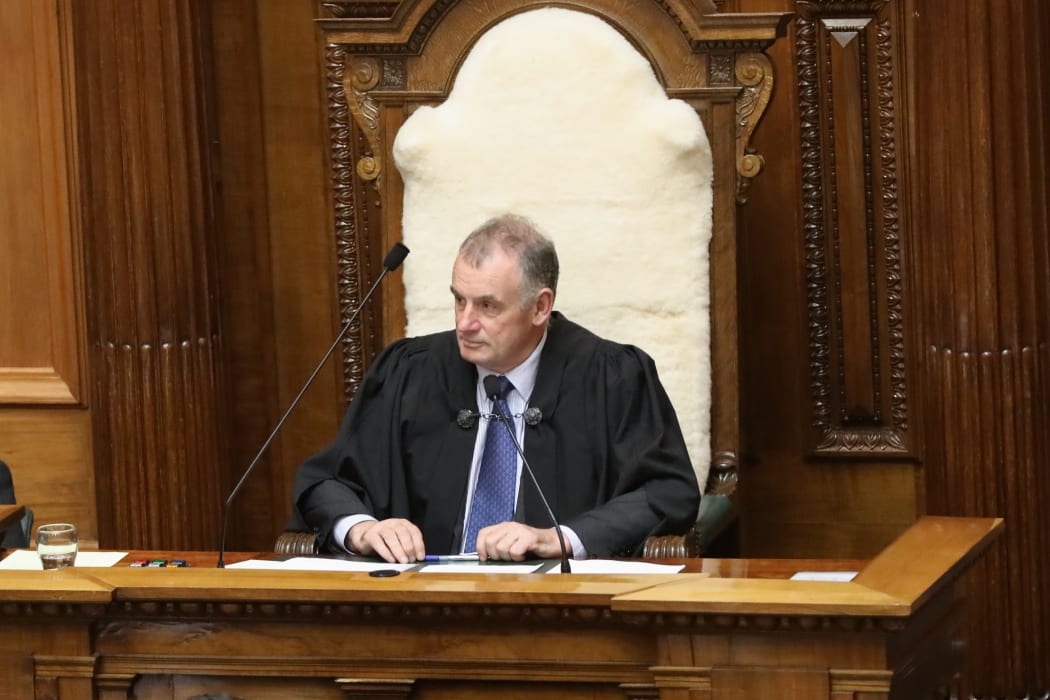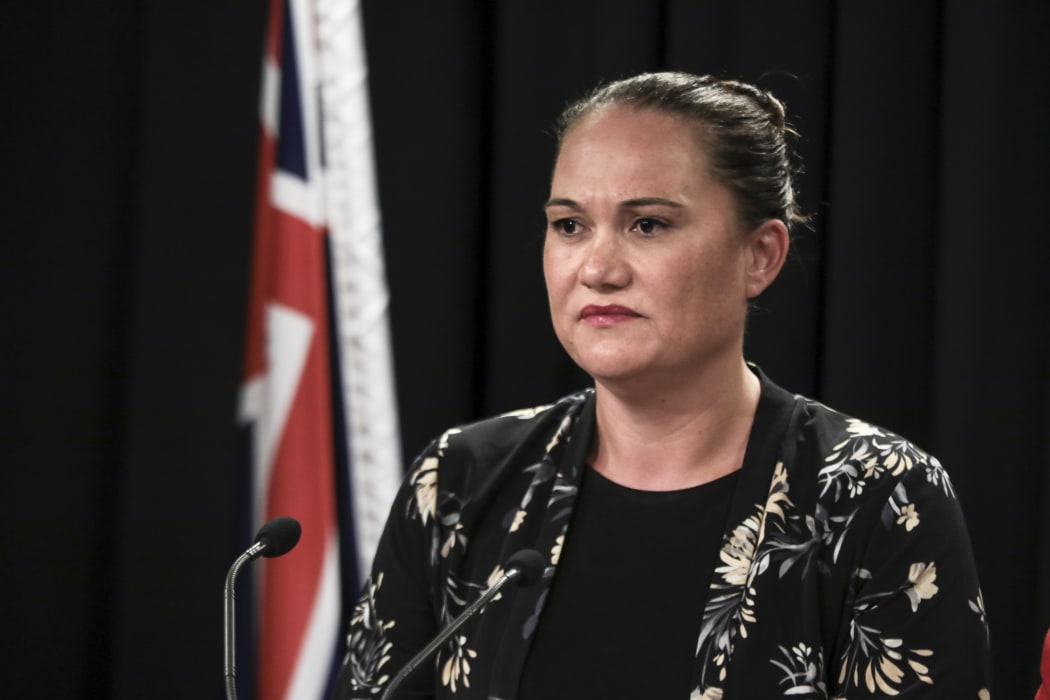Parliament regularly does something that might be described as god-like and miraculous, but is actually commonplace.
Parliament did it this last week on Social Security. It debated a bill that was also three bills. MPs would tell you that the ‘three made from one’ was also ‘one made from three’. Yes, I know, it sounds spookily like the theology of the trinity. Let me explain by going a bit wider...
Parliament is very powerful, and unfettered power is scary because humans have a tendency towards tyranny. So Parliament, aware of its own strength, sets lots of rules to fetter itself. Rules about what it can do and how and when it can do it.

The rules Parliament sets for itself are called Standing Orders Photo: Supplied / The Office of the Clerk
One rule Parliament has restricted itself with says that (with some limited exceptions), a law must be about one thing, just one issue. You can’t write a bill that jumbles lots of unrelated laws in together.
One reason for this rule is that if laws were a jumble of topics it would make it difficult for Parliament or for the public to properly examine and critique them, or even to figure out what they were about.
So you can’t hide a clause outlawing cycling, or increasing tax in a boring bill on, say accountancy standards. Because that just wouldn’t be fair.
But there are exceptions - which allow what are called omnibus bills. Bills that affect more than one law at a time. And this week Parliament had two different kinds of exceptions in the House. So let me outline them both:
One exception is for compilations of tiny amendments to fix lots of different laws. These are called Statutes Amendment Bills and the way they work has a second layer of protection from abuse. Every clause in a Statutes Amendment Bill will be unrelated and make a small fix to a different law. But every clause stands alone and must have unanimous support.
By convention every MP has to agree with each clause of one of them to stop anything weird being added. As the Speaker said in his briefing, “Every clause in that Bill has to be agreed by all Members of Parliament. Any Member of Parliament can have a clause struck out.”

The Speaker, Trevor Mallard Photo: VNP / Phil Smith
A second exception is where a group of bills that cover related topics are considered together under one name for convenience. But they have to be close enough to make sense.
This week Parliament completed the third and final reading of a Social Security bill called the Social Security Legislation Rewrite Bill. But the third reading wasn’t really of that bill, it was of three separate bills that together used to be called that.
It was now three bills called The Social Security Bill, the Residential Care and Disability Support Services Bill, and the Artificial Limb Service bill. When the previous debates had happened there was just one bill, but now - three.
The bills each deal with different aspects of social security. Together they mostly repeal a single huge Social Security Act, but they’re close enough to be considered together by the House and by Select Committees - which saves a lot of time.
The Minister in Charge of the Bills, Carmel Sepuloni explained their split.

Carmel Sepuloni, Minister of Social Development. Photo: RNZ / Rebekah Parsons-King
“Following enactment of these three bills, the 1964 Act will be replaced by three new and separate Acts: the Social Security Act, the Artificial Limb Service Act, and the Residential Care and Disability Support Services Act. Legislation regarding the Artificial Limb Service and residential care and disability support services does not fit well within the current Social Security Act, and it is appropriate that these both become stand-alone pieces of legislation. Once enacted, the separation of these Acts will ensure clarity and accessibility for the public and it will also ensure that provisions are fit for purpose within the relevant legislation.”
This miraculous split actually happens at the end of the Committee Stage when one of the amendments put forward is to separate the Bill.
And because Parliament is confusing by nature, despite there now being three separate bills they still get debated together for that third and final reading - before flying off to live separate lives once signed into law by the Governor General.
The three that were one, but were also three. Parliament has magic up its sleeves, but water into wine is still beyond it.


